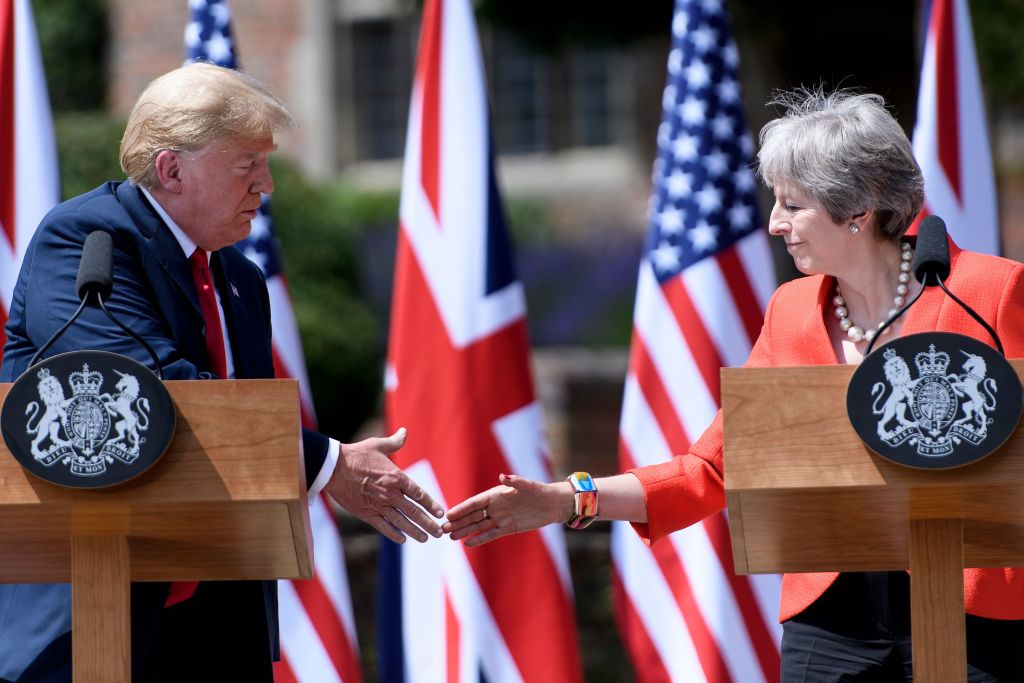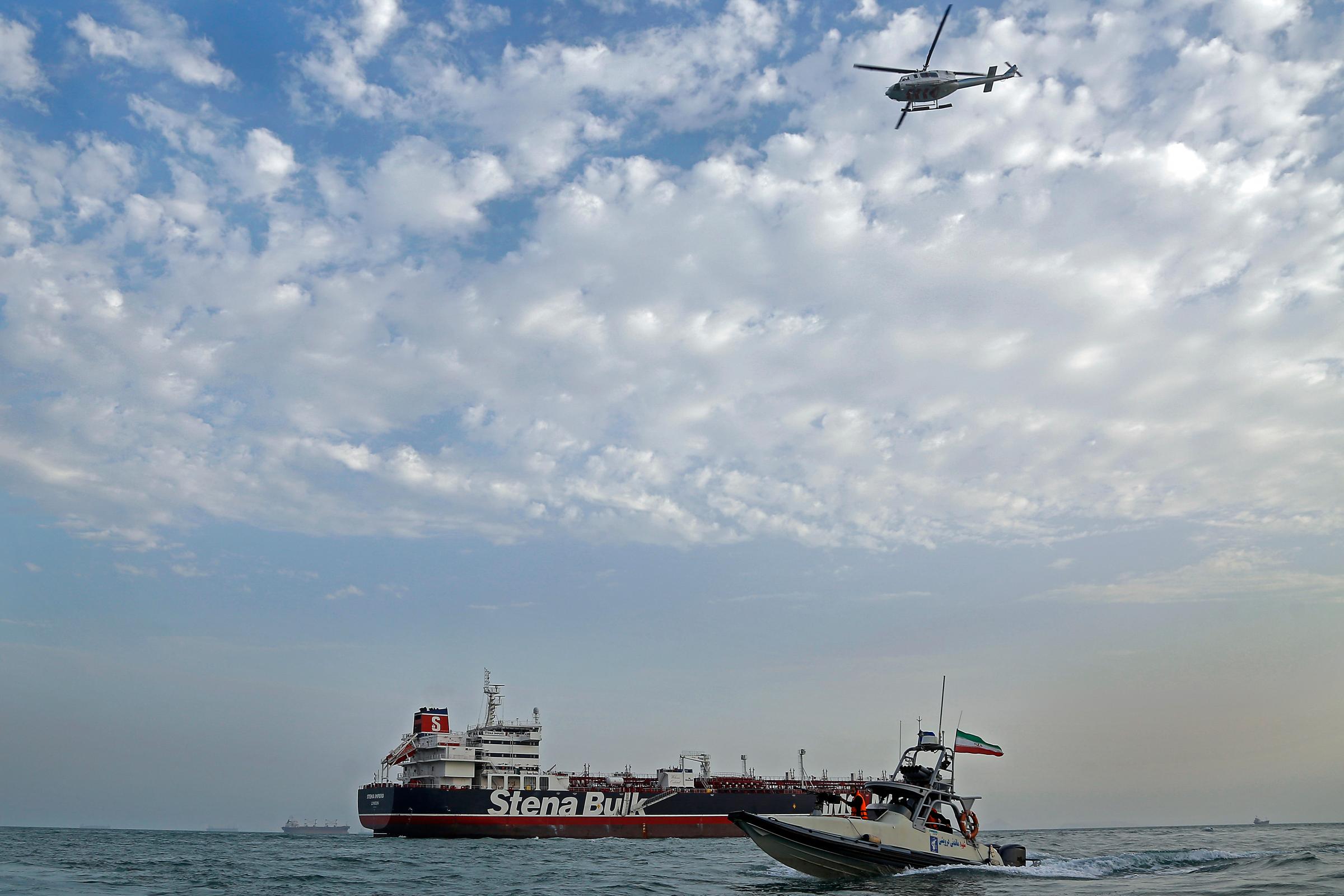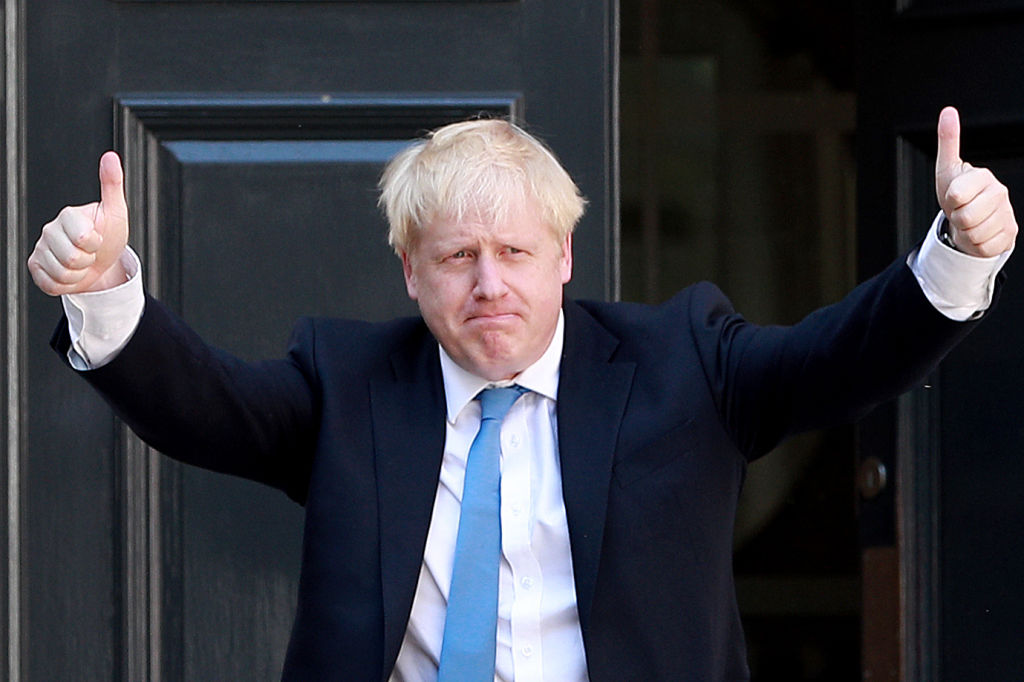
At the Aspen Institute’s annual gathering of national security and foreign policy leaders in July, the former acting CIA director, John McLaughlin, choked up as he recalled how British intelligence chiefs had traversed closed air space from London to Washington to literally embrace their American counterparts after the 9/11 attacks.
McLaughlin and Sir John Scarlett, the former head of Britain’s MI6 spy agency sitting beside him, remembered fondly the “special relationship” the U.S. and U.K. had, a relationship that both agreed is troubled at a time when tension with Iran threatens to break into armed conflict. Britain announced Monday that it would form its own European-led patrol of Persian Gulf waters, where Iran seized a British oil tanker Saturday, rather than join an American-led effort.
This follows the unprecedented decision by the Trump administration to withhold detailed information from Britain ahead of a planned U.S. military strike on Iran, later aborted, following the shooting down of an American drone. Four senior administration officials confirm to TIME that they left the Brits out of the planning, conceding that was “unusual” but blaming it on the speed of the response.
“It is not that common for us to execute operations unilaterally without them,” one of the officials said. “But in this case, because of the nature of the incident and the proposed response, it wasn’t an essential element.”
And the Trump White House may act unilaterally without briefing the Brits in detail again, depending on the action needed to respond to Iranian aggression toward U.S. troops or interests in the region, they said, speaking anonymously in order to discuss the sensitive matter.
President Donald Trump ultimately canceled the planned action, but the U.S. decision to withhold information sent a tremor through an alliance at least superficially dented by Trump’s Twitter attacks on outgoing British Prime Minister Theresa May, and by his savaging of the former British Ambassador to the U.S. Sir Kim Darroch, whose unflattering assessments of Trump’s administration were leaked in the British media and forced him to resign.

“Cowards,” one senior U.S. official said, summing up the Trump administration’s frustration with the Brits’ continued support for the Iran nuclear deal, their reluctance to confront Iran more directly and their attempts to help Iran bypass U.S. sanctions together with other European parties who remain in the nuclear deal.
Former British Conservative leader Iain Duncan Smith told the BBC that Theresa May had turned down a U.S. offer of help in the Persian Gulf before Iran seized Britain’s oil tanker, apparently demurring because she didn’t want to increase the risk of being drawn into an armed conflict.
U.S. officials said Britain’s allegiance to the Iran nuclear deal explains its decision to reject joining “Operation Sentinel,” a fledgling plan by U.S. Central Command to organize an allied patrol of the Gulf waters.
British Foreign Secretary Jeremy Hunt announced on Monday that Britain would be forming its own “European-led maritime protection mission to support safe passage of crew and cargo,” after Iran’s seizure of the British-flagged oil tanker MV Stena Impero.
The senior administration officials said they understood that Britain was trying to separate itself from the U.S. maximum pressure campaign on Iran, but that the European-led mission would still need U.S. intelligence and surveillance support, because the Americans have far more military assets in the region.
The chill from Washington, as the Brits perceive it, has also unnerved others in Europe who rely on Britain as their Trump whisperer. Many Europeans count on Britain to check Trump’s worst impulses on the international stage — or at least to give them forewarning.
U.S. officials in Europe also admitted they had been slow to share plans of their Iran response, giving what officials called uncharacteristically late notice of the planned strike on Iranian military targets after Tehran shot down a U.S. drone.
Two senior U.S. officials said Acting Secretary of Defense Mark Esper had tried to mollify U.S. allies by explaining the U.S. strategy toward Iran at last month’s NATO summit in Brussels.
But that explanation infuriated Britain even more, in that all NATO members got the same sanitized, okay-for-mass-distribution version, as opposed to the deeply detailed briefings the U.S. usually gives the U.K.
The selection as Britain’s next prime minister of Boris Johnson, who created strong ties with the Trump administration during his time as May’s foreign secretary, may go a long way toward healing the political relationship. “From what we know of his positions, from the time he was foreign secretary, on Iran, on Israel, on Yemen, I think we would have a real opportunity to broaden our interaction and cooperation,” one of the senior administration officials said Tuesday after Johnson’s election. “We are eager to start trade negotiations …because we see a huge opportunity to maximize the relationship” once the new UK government settles in, the official said earlier.
Trump was quick to congratulate Johnson and called him “tough” and “smart.” “We have a really good man who’s going to be the prime minister of the UK now,” Trump said in comments to Turning Point USA, a youth organization. “They call him Britain Trump. And people are saying that’s a good thing. They like me over there. That’s what they wanted. That’s what they need.”
But the bewilderment and wariness of British national security officials will likely persist.
A British government spokesperson on Tuesday would only offer that they “are in regular contact with our U.S. counterparts and work closely with the U.S. on Iran, as we do on a wide range of global security issues.”

At the Aspen Security Forum, held last week, a steady succession of former Bush and Obama officials, as well as some currently serving government officials, made their apologies to the British officials in attendance over Trump’s treatment of Ambassador Darroch. Darroch has himself been getting messages of support from around the world, according to those close to him.
It didn’t help warm the chill when the four-star commander of the U.S. Indo-Pacific Command declared Japan as possibly the top U.S. ally in the world.
“I would say not only is Japan our most important ally in the region, they might be indeed our most important ally on the globe,” Adm. Philip Davidson said to the forum. A British official could be seen having an intense conversation with him after the event.
Republican Congressman Mac Thornberry of Texas, speaking in Aspen, blamed any lack of notice to the U.K. ahead of the potential military strike on the turmoil and imminent leadership turnover of the prime minister’s job. He said he and other Republican and Democratic lawmakers had visited Trump in advance of the potential military strike and urged the president not to allow Iran to divide the U.S. from its allies.
“It is essential that whatever you do about this drone shoot down, that we do it with our allies to prevent them from splitting us,” he said in Aspen, “especially in my opinion, our closest ally around the world, and that’s the U.K.”
Neither McLaughlin nor Scarlett, the former U.S. and British intelligence chiefs, seemed to think the message had gotten through.
“It’s very important that the leadership on all sides understand the value of our…alliance…It’s a deep relationship,” said Scarlett. “Perhaps they didn’t really.”
“I found it appalling that he insulted Theresa May,” McLaughlin said of Trump’s tweets lambasting May after it was revealed that her U.S. ambassador had called the Trump administration inept. “I don’t want to say it’s over because we can’t give up,” said McLaughlin of the U.K.-U.S. relationship. “But if we neglect allies, and we do it long enough, they’ll start to make their own arrangements.”
Dozier reported from Aspen, Brussels, London and Washington D.C.
This post has been updated to include a comment from a British government spokesperson.
This post has been updated to include additional comment from a senior U.S. administration official.
More Must-Reads from TIME
- How Donald Trump Won
- The Best Inventions of 2024
- Why Sleep Is the Key to Living Longer
- Robert Zemeckis Just Wants to Move You
- How to Break 8 Toxic Communication Habits
- Nicola Coughlan Bet on Herself—And Won
- Why Vinegar Is So Good for You
- Meet TIME's Newest Class of Next Generation Leaders
Contact us at letters@time.com